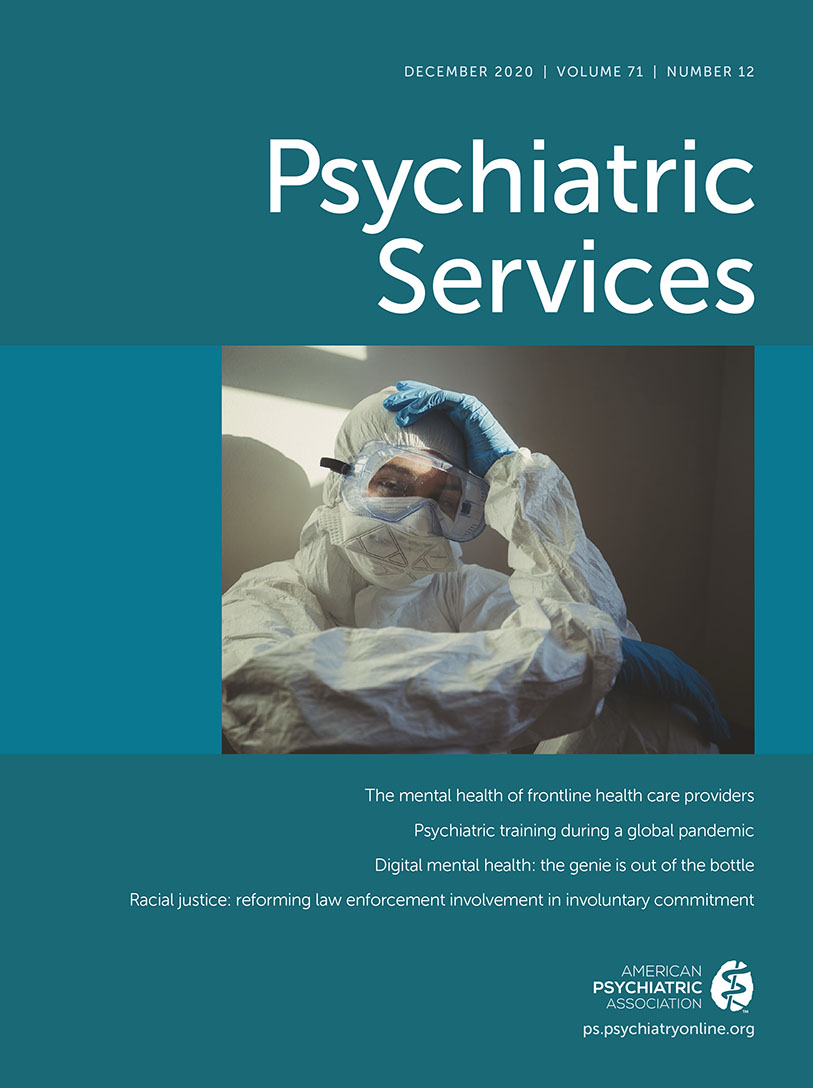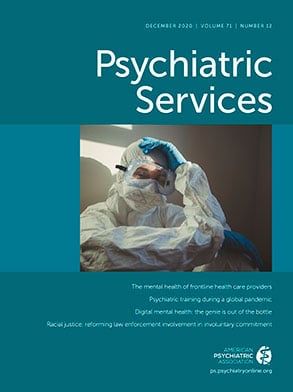TO THE EDITOR: I am grateful to Dr. Smith and to Dr. Saxena for engaging with my Global Mental Health Reforms column on the relationship between hospital and community care (
1–
3), and I look forward to further conversations about this topic. To that end, I offer a few responses.
The column discusses the analytic leverage provided by the countries selected. Scholarship on psychiatric deinstitutionalization has demonstrated that this process is closely associated with economic and political development—a precondition that helps to explain why less affluent countries appear to be locked into psychiatric hospital care (
4). The countries chosen therefore represent the first movers: societies whose early industrialization prompted the rise of the asylum and whose postwar economic prosperity and democratic politics prompted its decline. To quantitatively delineate this group, I conducted a cross-national analysis of Gross Domestic Product (GDP) per capita in 1960. Fifteen countries emerge tightly distributed around an average of $11,000 GDP per capita (in 2005 general dollars) (
5). The next wealthiest country on the list is almost a full standard deviation (0.7) less than the lowest unit in the range. Microstates were excluded. These countries set the global standards in this policy area, so researchers should pay close attention to developments within them.
The column also addresses many of the other methodological questions Dr. Saxena raises. Worth adding is that the World Health Organization (WHO) delayed the public release of its 2017
Atlas data. An introductory report appeared the following summer, and much of the necessary information from the country-specific data profiles did not appear until after I had submitted the column for peer review (
6). Moreover, the newer data set still lacks observations for relevant variables and countries. (Note the current absence, for example, of 2017 English data [
7].) The WHO is developing an unparalleled resource for researchers, so the timely and complete release of its data is necessary for precisely the reasons identified.
Finally, access to services and human rights protections should not be conflated, especially if pointing to impressions instead of empirical evidence. The decisions that influence involuntary commitment laws, the use of physical restraints, and other coercive practices often take place in spheres separate from those that determine the supply of hospital care (e.g., the legal system versus health care financing policy). Perhaps even more important, my column notes that the risk of abuse is present in community-based psychiatric services, too. As Dr. Smith suggests in his analysis of the stigma associated with inpatient psychiatry, such biases in fact may be counterproductive to the quest for robust, coordinated, and optimally balanced mental health care systems.

